
Atomic Pulse
Younger Generation Leaders Network Marks 3rd Anniversary in Minsk
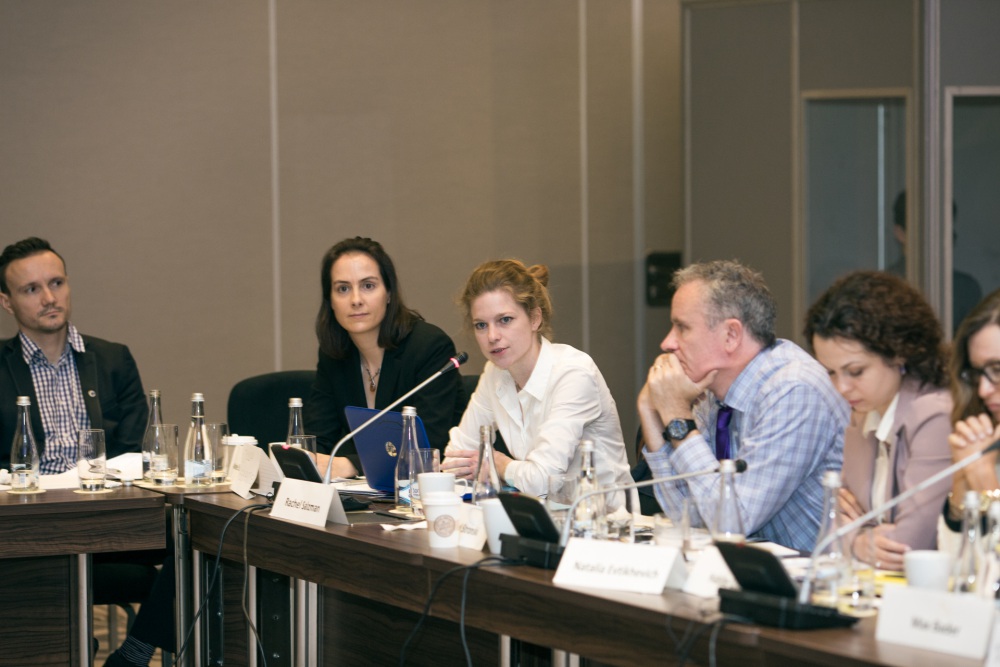
It has now been three years since NTI – together with the
Carnegie Endowment for International Peace, the European Leadership Network and
the Russian International Affairs Council – founded the Younger GenerationLeaders Network on Euro-Atlantic Security (YGLN). This network of emerging
young leaders was established in response to the crisis in Ukraine. The objective was to bring together young
people from Ukraine and Russia, and from Europe and the United States as well,
to engage in dialogue, seek better understanding, and create linkages that had
been seriously damaged by upheaval in the region.
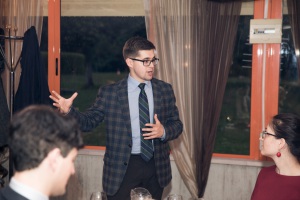
Over
the course of the past three years, this small group of young people who came
together to address the crisis of the day has evolved into a capacity-building
initiative of over 80 emerging leaders from 27 countries in the Euro-Atlantic
region.
Its agenda has expanded beyond Ukraine and now addresses current
security, developmental, and economic challenges in the Euro-Atlantic space and
the challenges of promoting open civil societies and the rule of law at a time
of rising populism and nationalist rhetoric in much of the region.
Meetings of the YGLN are held
twice a year in various European capitals.
The most recent meeting was held in early September in Minsk, Belarus.
Minsk offered some unique challenges but also a rare opportunity to meet in a
country that most people rarely visit. To
hold our meeting there, the YGLN had to obtain approval from the Belarusian
government.
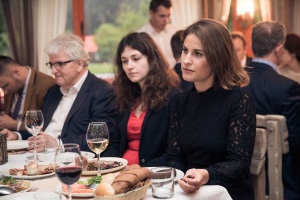
It took seven months for our request to work its way through
the Ministry of Foreign Affairs and the Belarusian Government’s interagency
process until it finally reached the desk of the President of the Republic of
Belarus, Alexander Lukashenko.
The Minsk meeting kicked off with
introductory remarks by Belarus’s Deputy Foreign Minister Oleg Kravchenko and a
briefing on contemporary issues facing Belarus by two YGLN members, Yauheni
Preiherman and Andrey Yeliseyeu.
After
the opening session, YGLN members divided up into the network’s working groups
on security, economics, rule of law, and civil society.

Each group tackled a set of challenges or questions,
ranging from cyberwar to relations between the European Union and the Eurasian
Economic Union to rule of law developments (and challenges) in Eastern Europe.
The working groups also had an
opportunity to interact in smaller-group settings with local Belarussian
experts.
The
Minsk meeting also featured a session with Belarussian parliamentarians and a
meeting with Belarussian NGOs and civil society.
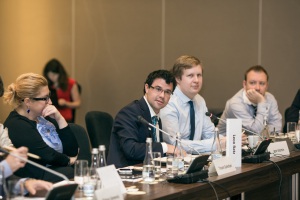
In the evenings members could
interact with one another in a more informal setting, debating topics such as
the Ukrainian crisis or the future of the European Union over local Belarussian
cuisine.
Over three years of discussion and
debate, YGLN members have been building the kind of trust that’s so desperately
lacking in the Euro-Atlantic region. They can talk about the most serious
issues affecting the region, often tackling major disagreements, with the respect
and comity that is needed to reach a positive resolution.
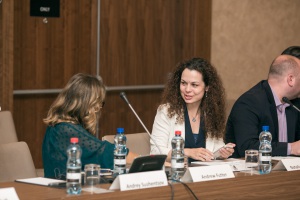
While the security situation in the
Euro-Atlantic region seems to grow more precarious by the week, the YGLN offers
hope that tomorrow’s generation of leaders will be able to work out their
differences and address the challenges that today’s generation has failed to
resolve.
Stay Informed
Sign up for our newsletter to get the latest on nuclear and biological threats.
More on Atomic Pulse
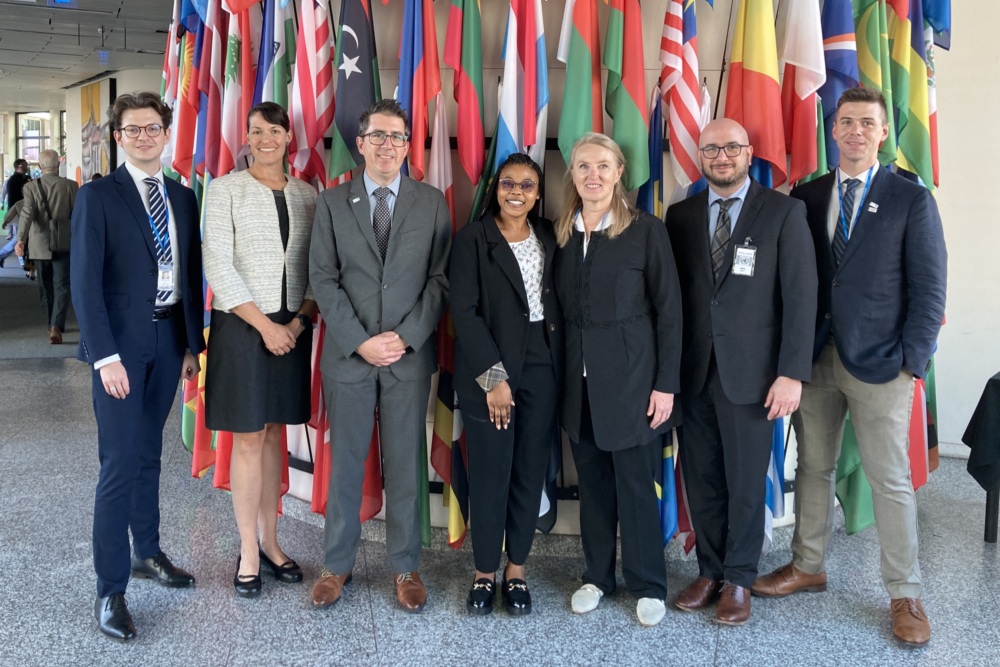
A Conversation with Lynette Moyo, Inaugural Recipient of the GCNP: Next in Nuclear Fellowship
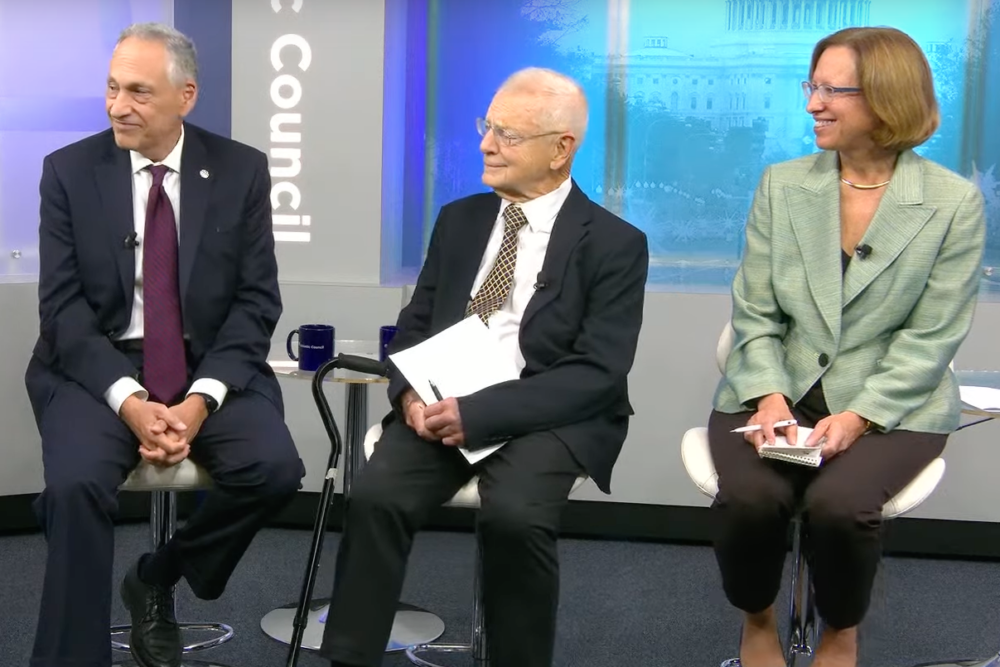
NTI’s Lynn Rusten on the Costly and Potentially Destabilizing Recommendations in the 2023 Strategic Posture Commission Report
Lynn Rusten, vice president of NTI’s Global Nuclear Policy Program, shares her reaction to the 2023 Strategic Posture Report during a panel event at the Atlantic Council.
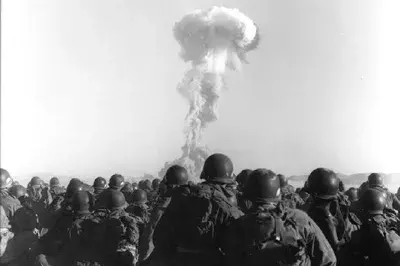
Mushroom Clouds That Never Vanished: The Fight to Secure Compensation for Nuclear Test Victims
There is no noise at first, only a flash so bright that the soldiers see their own bones and blood vessels through their skin, as if they have x-ray vision.

